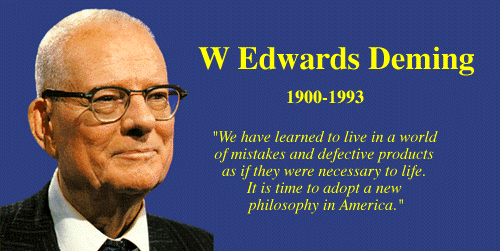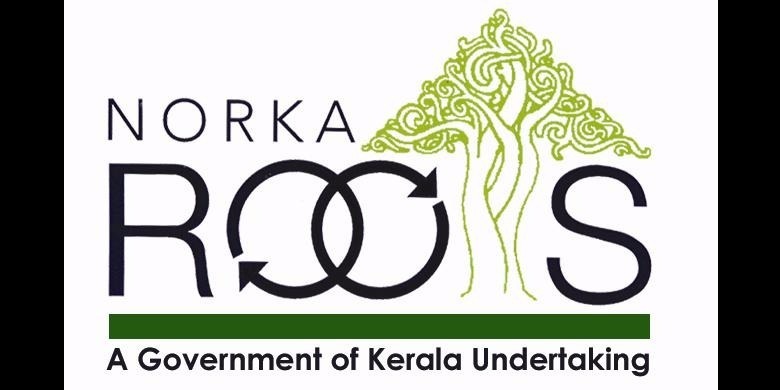Fourteen key principles for management for transforming business effectiveness – W.Edwards Deming

Edwards Deming was born in 1900. He was a US statistician and founding father of the quality movement. He was also responsible for instilling quality philosophy into post-war Japanese industry with his friend, Joseph Juran. Both were honoured by the Emperor with the Order of Sacred Treasure, second class, the highest Japanese award ever given to foreigners. William E Conway, Nashua president called him “The father of the Third Wave of the Industrial Revolution” referring to the way he developed statistical control of quality levels into a new way of managing business.
Thanks to his theories, several large corporations such as Ford Motor Company were able to over come intractable problems they were suffering in the 1970s.
Before this he trained to be an electrical engineer at the University of Wyoming and received a Ph.D. in mathematical physics at Yale. He then worked at the western Electric Howthorne plant in Chicago before becoming a statistician.
Some of his best known works are: Out of the Crisis, “The Deming Management Method” and “Quality, Productivity and Competitive Position.” He died in 1993.
1.Create constancy of purpose toward improvement of product and service, with the aim to become competitive and stay in business, and to provide jobs.
2. Adopt the new philosophy. We are in a new economic age. Western management must awaken to the challenge, learn their responsibilities and take on leadership for change.
3. Cease dependence on inspection to achieve quality. Eliminate the need for inspection on a mass basis by building quality into the product in the first place.
4. End the practice of awarding business on the basis of price tag. Instead, minimize total cost. Move toward a single supplier for any one item, on a long-term relationship of loyalty and trust.
5. Improve constantly and forever the system of production and service, to improve quality and productivity, and thus constantly decrease cost.
6. Institute leadership – the aim of supervision should be to help people and machines and gadgets to do a better job. Supervision of management is in need of overhaul, as well as supervision of production workers.
7. Drive out fear , so that everyone may work effectively for the company.
8. Break down barriers between departments. People in research, design, sales and production must work as a team, to foresee problems of production and use that may be encountered with the product or service.
9. Eliminate slogans, exhortations and targets for the work force asking for zero defects and new levels of productivity. Such exhortations only create adversarial relationships, as the bulk of the causes of low quality and low productivity belong to the system and thus lie beyond the power of the work force.
10 Eliminate work standards (quotas) on the factory floor. Substitute leadership.
11. Eliminate management by objective . Eliminate management by numbers, numerical goals. Substitute workmanship.
12. Remove barriers that rob the hourly worker of his right to pride of workmanship. The responsibility of supervisors must be changed from sheer numbers to quality.
13. Remove barriers that rob people in management and in engineering of their right to pride of workmanship. This means, inter alia, abolishment of the annual or merit rating and of management by objective Institute a vigorous program of education and self-improvement.
14. Put everyone in the company to work to accomplish the transformation. The transformation is everyone’s work.
Courtesy: David Gurteen






